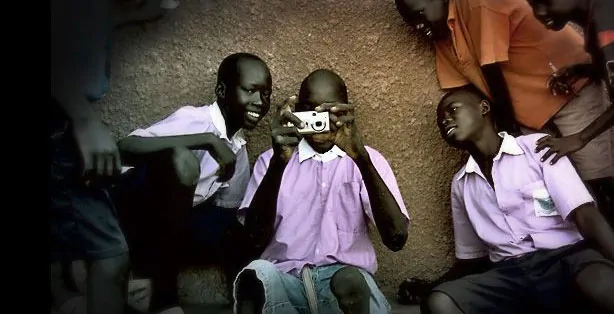I’m not going to lie to you. I am an unabashed fan of community. I fell in love with the community in Acts soon after I fell in love with Christ. I am a big fan of the New Monasticism movement and Shane Claiborne. I knew I would learn many different life lessons moving to Rwanda, but I had no clue the culture of community practiced here would daily bring me closer to God.
The idea of community has always been quite simple to me. By really living in and among God’s creation, you can fully discover just how much God is in all of us and in return, value and respect others, yourself and God to the fuller level He intended.
As I am starting to see the full impacts of a culture of community, I must first admit it’s easier here. Many people don’t have the luxury of a large house or attention-grabbing electronic devices. Secondary school students live in dorms that remind me of rundown, overcrowded military barracks. The chances of privacy are few, but the compassion between these students is stronger than anything I have seen before. Every article of clothing outside of the necessary school uniform is fair game for everyone to use. Personal belongings aren’t the only thing openly contributed. Occasionally the dining hall runs out of food, but those at the end of the line are always welcomed to share their bowl with those who have already received food. This is extremely generous considering they only receive two meals a day—barely enough nourishment for one kid, let alone two.
It’s not just students who are living a culture of community. If someone asks you to join them in conversation, and food is brought out, it is expected that you share their meal with them. Most people become upset if you do not. This has taken me some time to get used to, as the concept of sharing the same plate with someone is seen as beyond personal in America. It takes a lot to share a dinner table with someone, let alone their plate. Regardless if it’s my favorite fish fingers or least favorite goat liver mixed with green bananas, the act of sharing has made me realize none of it is mine, the person I am sharing with is a child of God and we are all blessed by what God has given us. God has turned this once intrusive cultural norm into a beautiful reminder of who He is.
When I thought I had witnessed all the fruit being produced from community, I ran into some students on my walk home from school one day, all carrying food and water. I asked them what they were doing and the students were surprised I didn’t know. They explained to me that the school takes care of a couple people who live close to the school and they were going to drop off some things and visit a neighbor. My path was immediately diverted when the students asked me join them in visiting this sweet older blind man who was living by himself. Along the route, I got the full rundown on this whole taking care of business.
The students explained to me that the school takes care of around 15 people who are either handicapped or genocide survivors. This means every day, either students or workers from school go to each neighbor’s house to bring them food and water, clean their house and spend time with them. After visiting with the blind man, I couldn’t help but feel love illuminating out of this man’s basic concrete home. When I asked the students why they go to see this man every day, they gave me a puzzled look and said, “Why wouldn’t we?” What a wonderfully simple answer. The students don’t see what they are doing as an act of love or charity but as a commitment and promise to those around them.
As I look around to those in my community here in Rwanda and look down at the word of God and the description of community toward the end of Acts chapter 2, I feel like they got it. Something I have put so much time and commitment to do in the U.S. comes as common culture to everyone here. Sharing the love God has put in their hearts comes naturally when community is not only practiced, but deeply rooted in society.
Living in Rwanda and seeing so many acts of Christ’s love through community has shown me we are all called to community and, through community, sharing the love of Christ can become more natural. I think regardless of where we live, we should strive to build community. We live in a world where our food and clothes are produced halfway across the world. We have electronic devices that can do a great job of keeping us company from the subway or car through the front door without having to see or share anything with anyone. Let’s work together to break down these walls and look each other in the eyes, share a meal and a couple of stories together. Let us all see the God fiber within each of us and let the love of Christ flow through it all.





















